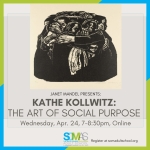The New York Times - They're even more evil now
drummerboy said:
How does both-siderism fit into conflict and tension? Answer - it doesn't.
That’s an answer, all right. An odd (or possibly incomplete) one, since pitting one side against another is a straightforward example of conflict and tension, but an answer nonetheless.
(True, the purported goal of both-siderism is fairness, which sounds all Peace, Love and Understanding. But it’s a fairness that’s intended to arise from a clash of ideas, rather than from an “Everybody’s right” framework.)
DaveSchmidt said:
drummerboy said:
How does both-siderism fit into conflict and tension? Answer - it doesn't.
That’s an answer, all right. An odd (or possibly incomplete) one, since pitting one side against another is a straightforward example of conflict and tension, but an answer nonetheless.
(True, the purported goal of both-siderism is fairness, which sounds all Peace, Love and Understanding. But it’s a fairness that’s intended to arise from a clash of ideas, rather than from an “Everybody’s right” framework.)
sorry. wrong answer.
drummerboy said:
sorry. wrong answer.
Rest assured, I pay attention to what you say, and will chew on that.
"But it’s a fairness that’s intended to arise from a clash of ideas, rather than from an “Everybody’s right” framework."
Says you
And it's less "everybody's right" than "everybody's equal".
drummerboy said:
And it's less "everybody's right" than "everybody's equal".
And we all know that when everybody’s equal, there’s no room for conflict and tension.
Q.E.D. for you, but still chewing. (Big day for that.)
If you're looking for some light listening, and some further reading, regarding the topic of this thread, I'm in the middle of both of these, and I find myself in agreement with Professor Rosen.
https://www.nytimes.com/2021/11/12/opinion/ezra-klein-podcast-jay-rosen.html
The complaint about false equivalence and both-siderism is specifically because there is no conflict presented. It's just -- here's what one group says, here's what the other says. It's also been termed the "view from nowhere".
ml1 said:
The complaint about false equivalence and both-siderism is specifically because there is no conflict presented. It's just -- here's what one group says, here's what the other says. It's also been termed the "view from nowhere".
exactly. the equalization of both sides eliminates conflict.
The View From Nowhere (Jay Rosen, 2003)
As Rosen articulates the critique, “from nowhere” describes the position of the journalist who is taking in the view. The view itself, Rosen writes, is the arena where partisans are struggling. That struggle is reflected in the reporting, which the journalist lets play out (or, in Smedley’s experience, is encouraged to play up), “from nowhere.” Coverage that presents the partisan struggle as being equal or balanced, as the critics of both-siderism fault it, still presents the partisan struggle. You can’t balance conflict and tension without conflict and tension. (In the end, you say, they eliminate each other or, as Rosen puts it, “seem to cancel each other out”? That, again, sounds odd to me. Who knew the Cold War was just a big nothing?)
If this all seems obvious and/or beside the point, I agree. I wasn’t the one who asked, “How does both-siderism fit into conflict and tension?”
ridski said:
If you're looking for some light listening, and some further reading, regarding the topic of this thread, I'm in the middle of both of these, and I find myself in agreement with Professor Rosen.
What do you take to be Rosen’s prescription for the press? In “The View From Nowhere,” he diagnoses journalists as bland, soulless arbiters who place themselves above conflict, but how soulful journalists whom “we can talk to” would be more reliable, accurate or insightful sources for understanding the world he doesn’t say. (The view from nowhere is what journalists consider high ground, Rosen says, and they claim it as a way of end the conversation about their objctivity, but where does he want the conversation to go?) In “The Coming Confrontation,” Rosen writes off the GOP as a counter-majoritarian party, even as he acknowledges its power. Given that sway — not to mention the many millions of Americans who subscribe to it, whatever their shrinking status — would abandoning what Rosen calls “bipartisan representation” in news coverage help readers and viewers grasp the country’s realities better?
I haven’t listened to the podcast yet.
The ever-prolific Rosen, from 2013, describing the “objectivity conservatives” who dominated journalism:
“Today they are not as confident that they have all the answers.”
Here’s hoping that any journalist, media critic, or media consumer feels that way.
Just thought we could have a nice, heartwarming moment here:
(I’ve got a bit too passionate elsewhere, and it’s always good to acknowledge when journos cover something well)
good thread on recent NYT copaganda piece.
THREAD: Yesterday, the New York Times published a headline it knew was false. The implications of this are dangerous for everyone who cares about an informed public. Here’s what happened:
— Alec Karakatsanis (@equalityAlec) November 27, 2021
drummerboy said:
good thread on recent NYT copaganda piece.
Update per the first eight tweets:
Correction: November 27, 2021
An earlier version of this article’s headline incorrectly characterized a quotation by a criminologist on a sudden increase in gun violence in New York City that began in 2020. He said detectives’ caseloads “doubled overnight,” not murders.
In any event the original is meaningless. If there is one murder on a given day and two on the following day then murders have doubled overnight.
In a borough of over a million people why would that be shocking? On Monday a person was fatally shot in a robbery in Mott Haven. On Tuesday a CEO of a corporation murdered her husband and his mistress in Riverdale.
DaveSchmidt said:
drummerboy said:
good thread on recent NYT copaganda piece.
Update per the first eight tweets:
Correction: November 27, 2021
An earlier version of this article’s headline incorrectly characterized a quotation by a criminologist on a sudden increase in gun violence in New York City that began in 2020. He said detectives’ caseloads “doubled overnight,” not murders.
The problem with that article is a helluva lot more than the title.
mtierney said:
DB, see 11/22 post at 2:59 pm
Did you mean 2:39? Typos happen, but DB, who apparently cared enough to look, may need some additional guidance.
DaveSchmidt said:
mtierney said:
DB, see 11/22 post at 2:59 pm
Did you mean 2:39? Typos happen, but DB, who apparently cared enough to look, may need some additional guidance.
It probably is the 2:39 post, but I don't see her point within the current context of the thread. (Of course, I didn't see the point of her post the first time I read it. Imagine mt arguing for reading a diverse set of opinions in the hopes of enlightenment.)
good piece by Paul Waldman on the cw messaging solution for the Dems.
https://www.washingtonpost.com/opinions/2021/11/23/biden-does-not-have-a-messaging-problem/
drummerboy said:
Smedley said:
drummerboy said:
Smedley said:
mjc said:
How about if we say they don't think they're biased against the Ds, maybe even believe they favor the Ds, but in fact their framing of issues, headlines, both-siderism disadvantage the Ds (not to mention the truth and possibly the well-being of the country, imo).
Fair point, but IMO getting into the framing of issues, headlines, and both-siderism can be a slippery slope. Where is the line between judging whether the media's reporting on an issue is fair or unfair (which is a fully legit exercise), and projecting one's personal truth onto the way s/he thinks the media "should" be covering the issue (which is a function of bias) ?
I don't claim to know precisely where that line is, but I do believe it's crossed more than it should be.
with all due respect, this thread is not the place to argue "slippery slope". I only post the most egregious examples of bad reporting here, where the bias, be it implicit or explicit, is pretty obvious.
Take my last CNN example. Do you actually think that you can argue that it was fair, or that my objection to it is based on my bias?
Or the absurd CNN piece about inflation? Same thing.
Or pick any of my numerous examples. You have never (as far as I can recall) attempted to argue that the reporting was in fact fair and I was just being biased.
Your reactions to all of my examples are simply knee-jerks, because you just assume I'm a wild-eyed liberal wacko.
Here is the critical distinction that you either don't get or don't want to get. And it's the primary reason we're not on the same page.
I've said this before --the. media. plays. up. conflict. and. tension. It's what they do. How do I know this? Well one way I know this is because I used to be a journalist at a major news organization and a senior editor would always ask "where's the conflict? where's the tension?" when he thought a story was lacking. Another top editor's critique would be "this is dry as toast". Same premise.
So, whenever there's conflict or tension, the media plays it up. No matter who's in charge. If Trump were president today and inflation were the same, the articles would be the same (or maybe worse, but let's say the same).
So the articles you posted. Were they all Pulitzer worthy? No. Were some overdone and perhaps even just plain wrong in ways? Yeah, probably.
But the warts on those articles are a function of the media's systematic overreaching on conflict and tension, and (quite possibly), a short staff and a 23-year old writer making $45k behind the wheel.
The warts on those article are not a function of having it out for Biden, or anti-Dem bias.
So that is where we disagree. An imperfect media business model, plus possibly a pinch of incompetence, does not equal bias.
it's pretty clear that you neither pay attention to what I say, or to the examples I've posted.
How does both-siderism fit into conflict and tension? Answer - it doesn't. And this attempt at false objectivity almost always disadvantages Democrats.
And regardless of intent, bias is bias, and it affects the mindsets of those people responding to those polls that you find so important.
But this has been said to you multiple times already also, but you don't address it.
Here's an interesting bit about media coverage at the outset of COVID. Which was probably the biggest economic story before the current inflation story.
https://www.ncbi.nlm.nih.gov/pmc/articles/PMC7227534/
Note references to "panic-laden news", "hysteria", "media hype", etc -- sounds pretty similar to the recent inflation articles that you are so outraged by.
Question -- where was your outrage last spring?
Smedley said:
drummerboy said:
Smedley said:
drummerboy said:
Smedley said:
mjc said:
How about if we say they don't think they're biased against the Ds, maybe even believe they favor the Ds, but in fact their framing of issues, headlines, both-siderism disadvantage the Ds (not to mention the truth and possibly the well-being of the country, imo).
Fair point, but IMO getting into the framing of issues, headlines, and both-siderism can be a slippery slope. Where is the line between judging whether the media's reporting on an issue is fair or unfair (which is a fully legit exercise), and projecting one's personal truth onto the way s/he thinks the media "should" be covering the issue (which is a function of bias) ?
I don't claim to know precisely where that line is, but I do believe it's crossed more than it should be.
with all due respect, this thread is not the place to argue "slippery slope". I only post the most egregious examples of bad reporting here, where the bias, be it implicit or explicit, is pretty obvious.
Take my last CNN example. Do you actually think that you can argue that it was fair, or that my objection to it is based on my bias?
Or the absurd CNN piece about inflation? Same thing.
Or pick any of my numerous examples. You have never (as far as I can recall) attempted to argue that the reporting was in fact fair and I was just being biased.
Your reactions to all of my examples are simply knee-jerks, because you just assume I'm a wild-eyed liberal wacko.
Here is the critical distinction that you either don't get or don't want to get. And it's the primary reason we're not on the same page.
I've said this before --the. media. plays. up. conflict. and. tension. It's what they do. How do I know this? Well one way I know this is because I used to be a journalist at a major news organization and a senior editor would always ask "where's the conflict? where's the tension?" when he thought a story was lacking. Another top editor's critique would be "this is dry as toast". Same premise.
So, whenever there's conflict or tension, the media plays it up. No matter who's in charge. If Trump were president today and inflation were the same, the articles would be the same (or maybe worse, but let's say the same).
So the articles you posted. Were they all Pulitzer worthy? No. Were some overdone and perhaps even just plain wrong in ways? Yeah, probably.
But the warts on those articles are a function of the media's systematic overreaching on conflict and tension, and (quite possibly), a short staff and a 23-year old writer making $45k behind the wheel.
The warts on those article are not a function of having it out for Biden, or anti-Dem bias.
So that is where we disagree. An imperfect media business model, plus possibly a pinch of incompetence, does not equal bias.
it's pretty clear that you neither pay attention to what I say, or to the examples I've posted.
How does both-siderism fit into conflict and tension? Answer - it doesn't. And this attempt at false objectivity almost always disadvantages Democrats.
And regardless of intent, bias is bias, and it affects the mindsets of those people responding to those polls that you find so important.
But this has been said to you multiple times already also, but you don't address it.
Here's an interesting bit about media coverage at the outset of COVID. Which was probably the biggest economic story before the current inflation story.
https://www.ncbi.nlm.nih.gov/pmc/articles/PMC7227534/
Note references to "panic-laden news", "hysteria", "media hype", etc -- sounds pretty similar to the recent inflation articles that you are so outraged by.
Question -- where was your outrage last spring?
are you serious? what happened to the economy last year? None of the news coverage struck my as particularly panicky, especially that early in the pandemic. (the article was published in May 2020 - the pandemic was barely getting started)
plus, the article is just dealing with equity markets, which have never been particularly rational.
you're clutching at straws here.
I suspect none of the news struck you as particularly panicky because the president at the time was a Republican, and sensationalistic coverage of negative news was fine.
Now that there’s a democratic president, sensationalistic news coverage bad. Very bad.
Smedley said:
Here's an interesting bit about media coverage at the outset of COVID. Which was probably the biggest economic story before the current inflation story.
https://www.ncbi.nlm.nih.gov/pmc/articles/PMC7227534/
Note references to "panic-laden news", "hysteria", "media hype", etc -- sounds pretty similar to the recent inflation articles that you are so outraged by.
Thanks — I noted the references while reading the study. First, it’s a study of global news sources. Second, “panic-laden” and “hysteria” refer to uses of words like those in coverage describing global reactions to the pandemic. (Which came first, the public panic or the stories inducing the panic? The authors blame the media as if that were a given. OK, assuming it was the latter, was it because the AI-measured “sentiment” of the coverage was sensationalized or simply because the news was objectively bad? The authors indicate that they demonstrated it wasn’t sensationalism.) Third, “media hype” is the study’s term, in one chart, for the finding that about 60 percent of global news sources were reporting on the coronavirus from mid-March through April 2020. Does that sound high? Fourth, the study concludes: “We find that panic spawned by the news outlets is associated with heightened volatility in financial markets around the world and this association is stronger for industries hardest hit by the events that unfolded during the pandemic. However, sentiment and quantum of media coverage had little to moderate association with volatility of prices.” I admit I’m having trouble matching “panic spawned by the news outlets is associated with heightened volatility” and “sentiment and quantum of media coverage had little to moderate association with volatility.”*
Not that you didn’t already grok all this, Smedley. This summary is for others, who may not read the whole link like you and I did.
*ETA: The best I can do is rationalize that while the coverage “spawned” the panic, the panic was given full flower by those who panicked over the coverage.
Smedley said:
I suspect none of the news struck you as particularly panicky because the president at the time was a Republican, and sensationalistic coverage of negative news was fine.
Now that there’s a democratic president, sensationalistic news coverage bad. Very bad.
In reality I believe DB didn't find it particularly panicky because, as he posted less than 2 weeks after the "lockdown" began, it allowed the Republican president at the time to underplay the looming crisis and presented it as a simple disagreement between the President and Governors.
DaveSchmidt said:
Smedley said:
Here's an interesting bit about media coverage at the outset of COVID. Which was probably the biggest economic story before the current inflation story.
https://www.ncbi.nlm.nih.gov/pmc/articles/PMC7227534/
Note references to "panic-laden news", "hysteria", "media hype", etc -- sounds pretty similar to the recent inflation articles that you are so outraged by.
Thanks — I noted the references while reading the study. First, it’s a study of global news sources. Second, “panic-laden” and “hysteria” refer to uses of words like those in coverage describing global reactions to the pandemic. (Which came first, the public panic or the stories inducing the panic? The authors blame the media as if that were a given. OK, assuming it was the latter, was it because the AI-measured “sentiment” of the coverage was sensationalized or simply because the news was objectively bad? The authors indicate that they demonstrated it wasn’t sensationalism.) Third, “media hype” is the study’s term, in one chart, for the finding that about 60 percent of global news sources were reporting on the coronavirus from mid-March through April 2020. Does that sound high? Fourth, the study concludes: “We find that panic spawned by the news outlets is associated with heightened volatility in financial markets around the world and this association is stronger for industries hardest hit by the events that unfolded during the pandemic. However, sentiment and quantum of media coverage had little to moderate association with volatility of prices.” I admit I’m having trouble matching “panic spawned by the news outlets is associated with heightened volatility” and “sentiment and quantum of media coverage had little to moderate association with volatility.”*
Not that you didn’t already grok all this, Smedley. This summary is for others, who may not read the whole link like you and I did.
*ETA: The best I can do is rationalize that while the coverage “spawned” the panic, the panic was given full flower by those who panicked over the coverage.
Cut to the chase -- does it makes sense to you that a media sensationalism watchdog would have scores of recent inflation articles to get hot about, but no issue with anything in the spring of 2020?
Smedley said:
Cut to the chase -- does it makes sense to you that a media sensationalism watchdog would have scores of recent inflation articles to get hot about, but no issue with anything in the spring of 2020?
When commenters post links, I assume they’re intended to be read as part of the chase.
Sure. “The pandemic was (and is) a huge problem; media coverage was in line with the threat. Inflation isn’t a big problem; media coverage is overblown.” That POV makes sense to me.
Postscript: Your argument for inconsistency in DB’s watchdogism, Smedley, rests on the idea that Covid coverage was overplayed. That may be your idea, but the link you provided, at least, didn’t support it.
Featured Events
Rentals
-
Huge Brand New construction Apartment in 2 family home with 4 bedrooms 3 bathrooms
4 Bd | 3Full Ba
$4,500



























it's pretty clear that you neither pay attention to what I say, or to the examples I've posted.
How does both-siderism fit into conflict and tension? Answer - it doesn't. And this attempt at false objectivity almost always disadvantages Democrats.
And regardless of intent, bias is bias, and it affects the mindsets of those people responding to those polls that you find so important.
But this has been said to you multiple times already also, but you don't address it.